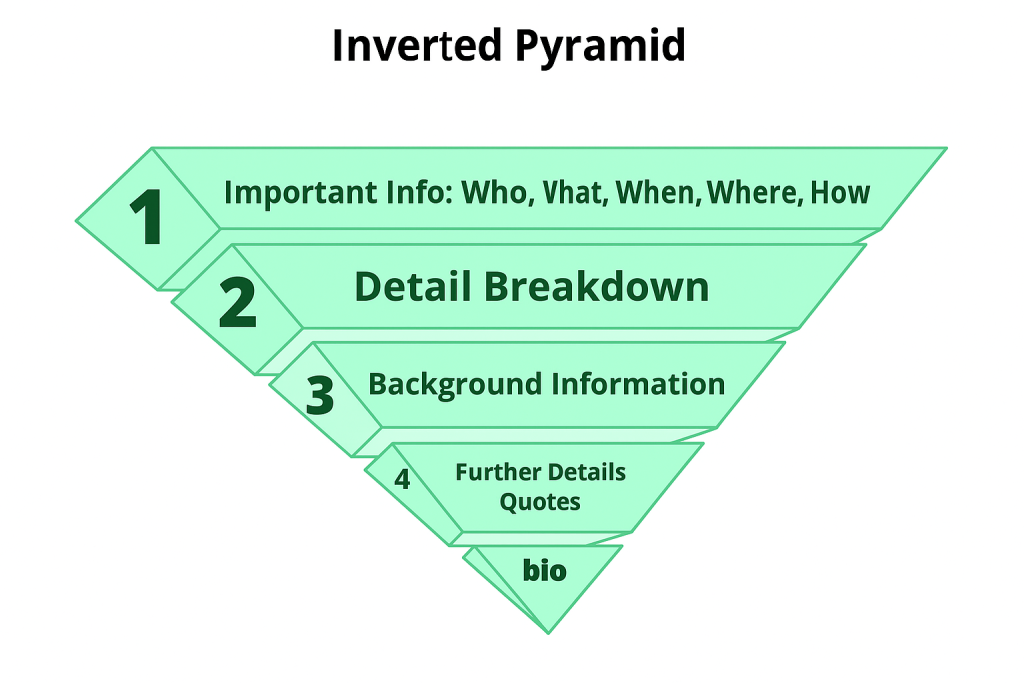Answering interview questions is more than just giving the “right” response — it’s about showing confidence, clarity, and relevance. Whether you’re facing an HR round, a technical panel, or a campus placement interview, the way you answer can make or break your chances. In this guide, we’ll explore five proven methods to help you respond effectively and leave a lasting impression.

This guide introduces top 5 ways to answering interview questions, used equally by both experts and freshers. We will break each method, share real examples, and show you how to implement them effectively depending on the role of your job.
Good answers are not about being perfect. They’re about being clear, structured, and aligned with the job. And the best candidates? They don’t “wing it.” They prepare.
This guide introduces top 5 ways to answering interview questions, used equally by both experts and freshers. We will break each method, share real examples, and show you how to implement them effectively based on the role of your job.
And before we dive in, make sure your resume is as strong as your answers. Use the Impacteers Resume Builder to create a modern, professional resume that works across all industries. More on that later.
Why Structured Answers Matter in Interviews
Interviewers today don’t just test your knowledge; they evaluate your thought process, communication, and clarity—making answering interview questions effectively a crucial skill for landing the job.
Poorly structured answers often:
- Go off-topic
- Lack impact
- Confuse the interviewer
- Undermine your technical or soft skills
With the right method, you can make your answers memorable and job-winning, whether it’s a walk-in interview or a final round at a tech firm.
1. The STAR Method (Situation – Task – Action – Result)
Best for:
- Freshers
- Behavioral questions
- Experience-based answers
This is the most popular method used in top companies across India and globally.
How it works:
- S: Describe the Situation
- T: Explain the Task
- A: Talk about the Action you took
- R: Highlight the Result
Example Question:
“Tell me about a time you solved a difficult problem.”
Answer (Using STAR):
Situation: In my final year of engineering, we were assigned a group project involving sensor-based automation.
Task: Our goal was to design a working model within four weeks.
Action: I led the coding team, handled hardware integration, and solved a major bug in the Java-based control system.
Result: We completed the project on time, scored full marks, and it was selected for the institute’s tech exhibition.
Pro Tip: Practice 3–4 STAR answers in advance. It works like a charm in HR rounds, campus interviews, and management jobs.
2. The PREP Method (Point – Reason – Example – Point)
Best for:
- Questions like “Why should we hire you?”
- Communication roles
- Fresher interviews
Structure:
- Start with a clear Point
- Explain your Reason
- Give a real Example
- Repeat the Point with confidence
Example Question:
“Why do you want this job?”
Answer (Using PREP):
I believe this role perfectly aligns with my skills and career goals.
Having studied marketing and managed a college fest with 5,000+ attendees, I understand real-world promotion and coordination.
During my internship at XYZ Media, I increased campaign reach by 25% using Instagram reels and polls.
So yes, I’m confident this role will allow me to contribute from day one while growing professionally.
It’s simple, structured, and works well even in walk-in interviews where time is limited.
3. The Problem-Solution-Impact (PSI) Approach
Best for:
- Technical roles (Java, DevOps, Engineering)
- Process improvement questions
- Project-based interviews
Format:
- State the Problem
- Describe your Solution
- Show the Impact
Example Question:
“How do you handle bugs in a Java project?”
Answer (Using PSI):
In one Java-based application I worked on, we faced memory leak issues due to improper object handling.
I used Java Profiler tools to identify the source and refactored the code using proper garbage collection techniques.
The result? The app’s memory usage dropped by 30%, and its crash rate was eliminated.
Ideal for engineering graduates, experienced software devs, or any job involving technical troubleshooting.
4. The “Rule of 3” Technique
Best for:
- Answering “What are your strengths/weaknesses?”
- HR and service job interviews
- Preparing short but impactful answers
How it works:
- Group your answer into 3 key points
- Keep it concise
- Show balance and self-awareness
Example Question:
“What are your strengths?”
Answer:
I’d say my top three strengths are:
First, adaptability, I quickly learn and adjust, especially in new environments.
Second, team collaboration, I’ve led multiple college projects and even mentored juniors.
Third, attention to detail, during my internship, my supervisor praised me for catching errors others missed in testing reports.
Use the same “3-point” strategy for weaknesses, achievements, or goals.
5. The Reverse Pyramid Approach

Best for:
- Answering open-ended or vague questions
- Experienced professionals
- Government/consulting/service roles
Format:
- Start with the most important point
- Then add supporting details
- Finish with context or explanation
Example Question:
“Tell me about yourself.”
Answer (Using Reverse Pyramid):
I’m a final-year B.Com student specializing in data analysis and financial modeling.
I recently completed an internship at ICICI Securities, where I worked on Excel dashboards to track mutual fund returns.
I’ve also earned a certification in advanced Excel and Tally, and I’m looking for a finance analyst role where I can build on these skills.
This method hooks attention immediately—great when interviewers are pressed for time.
How to Practice These Methods Effectively
- Take a list of 20 common interview questions
- Categorise them (behavioural, technical, HR)
- Choose a method (STAR, PREP, PSI, etc.)
- Write your answers in a Word or PDF format
- Record yourself answering or use mock interview tools
Use resources like Impacteers Interview Prep PDFs to practice sample answers and real questions asked in companies.
Freshers: Use These Methods to Stand Out
If you’re a fresher:
- Use STAR for campus activities and college projects
- Use PREP when you have little experience but lots of motivation
- Use PSI even for internship-based problem solving
- Focus on skills, potential, and learning attitude
Don’t worry about not having full-time experience—these methods help show what you do have.
Experienced Professionals: Combine Methods for Precision
If you have job experience:
- Start with the Reverse Pyramid to highlight key wins
- Use STAR + PSI to explain projects or team achievements
- Prepare case-based answers for consulting or product roles
- Keep answers job-role aligned—mention processes, results, metrics
Example:
“When answering interview questions about previous achievements, it is important to have specific and result-in-conduct. For example, in my final job, I led a process automation project using python to reduce manual data entry for inventory updates. I have developed a script that cuts the reporting time from 2 hours to just 15 minutes, while the error rate reduces the rate by 40%.”
Short, sharp, and results-driven.
Don’t Forget Your Resume – It’s Where the Interview Starts
All these answers are based on what’s already in your resume.
Make sure your resume is:
- Well-structured and formatted
- Role-specific (use keywords)
- Includes skills, projects, and achievements
- Saved in PDF and Word formats
Use the Impacteers Resume Builder to:
- Choose modern, ATS-friendly templates
- Add answers-ready bullet points under each job/project
- Get downloadable placement and fresher-specific formats
- Align your resume with interview prep resources
A good resume helps you answer questions confidently, because it’s already done half the talking.
5 Must-Prepare Interview Questions (With Answer Format Suggestions)
| Question | Best Method to Use |
| Tell me about a challenge you overcame | STAR |
| Why should we hire you? | PREP |
| Describe a successful project | PSI |
| What are your biggest strengths? | Rule of 3 |
| Walk me through your resume | Reverse Pyramid + STAR combo |
Practice each with 2-3 examples. Write, rehearse, repeat.

Frequently Asked Questions (FAQs)
1. What’s the best way to answer “Tell me about yourself”?
Use the Reverse Pyramid approach. Start with your current status, then mention key achievements, and end with your career interest.
2. How can freshers prepare strong interview answers?
Use STAR and PREP methods to talk about internships, projects, or college experiences. Focus on what you learned and how you added value.
3. Should I memorize my interview answers?
No. Memorize structure, not scripts. Practice fluency, but sound natural and flexible.
4. Can I use the same method for all questions?
No. Mix methods based on question type. Use STAR for stories, PSI for problem-solving, and PREP for opinion-based answers.
5. Is there a tool to prepare my resume and answers together?
Yes. Try Impacteers Resume Builder – it helps you format your resume, craft bullet points aligned to interview questions, and download in PDF/Word.
learn More >>> https://blog.impacteers.com
About Us >>> https://www.impacteers.com



Post Comment